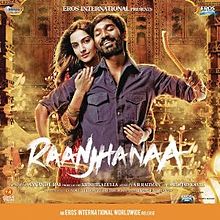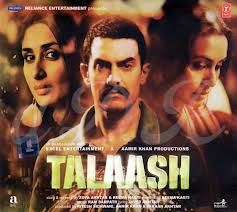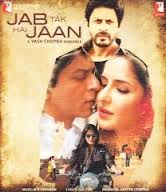CD review/ Haider – Music: Vishal Bhardwaj
Haider
Music: Vishal Bhardwaj
Genre: Hindi film
Label: Junglee Music
Rating: ****
AS a music director, Vishal Bhardwaj has numerous individual hit songs to his credit, but in terms of overall consistency, one usually thinks of his earlier films ‘Maachis’ and ‘Godmother’. In his latest directorial venture ‘Haider’, he returns to that form once again.
Inspired by William Shakespeare’s ‘Hamlet’, the Shahid Kapoor-Shraddha Kapoor film is set in Kashmir. As such, the music is a neat blend of Kashmiri folk tunes, Urdu lyricism and western sounds. The best part is that it is versatile, with a good mix of mass-friendly and soulful numbers.
Barring two pieces by famed Pakistani poet Faiz Ahmed Faiz, the lyrics have been written by Gulzar, mostly in his inimitable style. Though Bhardwaj uses his regular favourites Vishal Dadlani, Sukhwinder Singh, Suresh Wadkar and wife Rekha Bhardwaj, the inclusion of Arijit Singh on two tracks lends freshness.
The album begins with the guitar-fuelled ‘Aao Na’, a grungy rock number sung energetically by Dadlani. With lines like “Arrey aao na, ke jaan gayee, kahaan gaya, so jaao, arrey aao na, ke thak gayee hai zindagi, so jaao”, it’s the kind of song that will instantly appeal to youngsters.
Sukhwinder is in great form on ‘Bismil’, a stage song which effectively changes tempo and makes good use of rabab, violins and oud, blending Kashmiri folk melodies with Middle Eastern sounds. The album also features ‘Ek Aur Bismil’, a rearrangement of the song with a more Arabic feel.
The other songs cut down the tempo. ‘Khul kabhi’, sung with emotion by Arijit, has shades of late 1990s AR Rahman, and is embellished by Gulzar’s words that go, “Khul kabhi to, khul kabhi kahin, main aasmaan, tu meri zameen, boond-boond barsoon main, paani-paani khelun-kheloon aur beh jaaoon, geele-geele hothon ko main, baarishon se choomoon, choomoon aur keh jaaoon, tu zameen hai, tu meri zameen.”
‘Gulon mein rang bhare’, a Faiz Ahmed Faiz ghazal popularised by the legendary Mehdi Hassan, has been sung by Arijit here, changing the sequence of the shers. While his rendition is soulful on its own and the arrangements are pleasant, those who’ve grown up on the original may not take to it. Of course, one wonders why so many people are using the song, as we have had adaptations by Mohit Chauhan and KK in the past.
One of the highlights is ‘Jhelum’, sung in raag Puriya Dhanashree by Bhardwaj himself. A moving string back-up accentuates the song which has the lines, “Jhelum Jhelum dhoonde kinara, Jhelum Jhelum dhoonde kinara, Dooba sooraj kin aankhon mein, Sooraj dooba kin aankhon mein, Jhelum huya khaara.”
‘So jao’, a group song featuring Bashir Lone, Bashir Bhawani, Muzamil Bhawani, Mayukh Sarkar, Aalaap Majgavkar and Sourabh Joshi, has shades of the ‘Satte Pe Satta’ hit ‘Pyaar hamein kis mod pe’ in its composition. ‘Do jahaan’, which blends Gulzar’s lines with Kashmiri folk lyrics, has been sung by Wadkar and Shraddha Kapoor. While singing in the local dialect, the actress shows a pleasant voice but wavers a bit – a full-time singer would have done wonders.
The album concludes with Rekha Bhardwaj singing ‘Aaj ke naam’, which is basically the same as Faiz’s nazm ‘Intesaab’. Here again, if one has heard the older version sung by Nayyara Noor with recitation by Shoaib Hashmi, this one seems a bit plain. However, those hearing it for the first time should be impressed by the sheer power of the poetry.
Overall, the most impressive thing about the soundtrack is that it echoes a feel of Kashmir effectively. Add to that a good variety of songs, and this becomes one of Bhardwaj’s best scores.
RATING SCALE: * Poor; ** Average; *** Good; **** Excellent; ***** Simply outstanding





